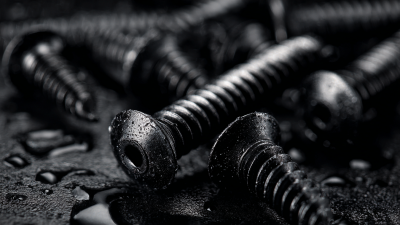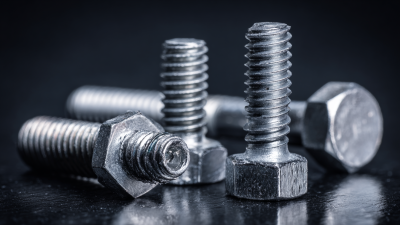In the realm of DIY projects, the right hardware can make all the difference, and one essential component that often gets overlooked is Black Self Tapping Screws. These versatile fasteners not only provide superior grip and stability but also enhance the aesthetic appeal of your projects with their sleek black finish. Whether you’re working on wood, metal, or plastic, understanding the unique benefits and applications of Black Self Tapping Screws is crucial for achieving professional results. This comprehensive guide will delve into the various types, sizes, and best practices for using these screws effectively, empowering DIY enthusiasts to unlock the full potential of their creative endeavors. With the right knowledge and tools at your disposal, you'll discover how Black Self Tapping Screws can elevate your projects and streamline your building process.
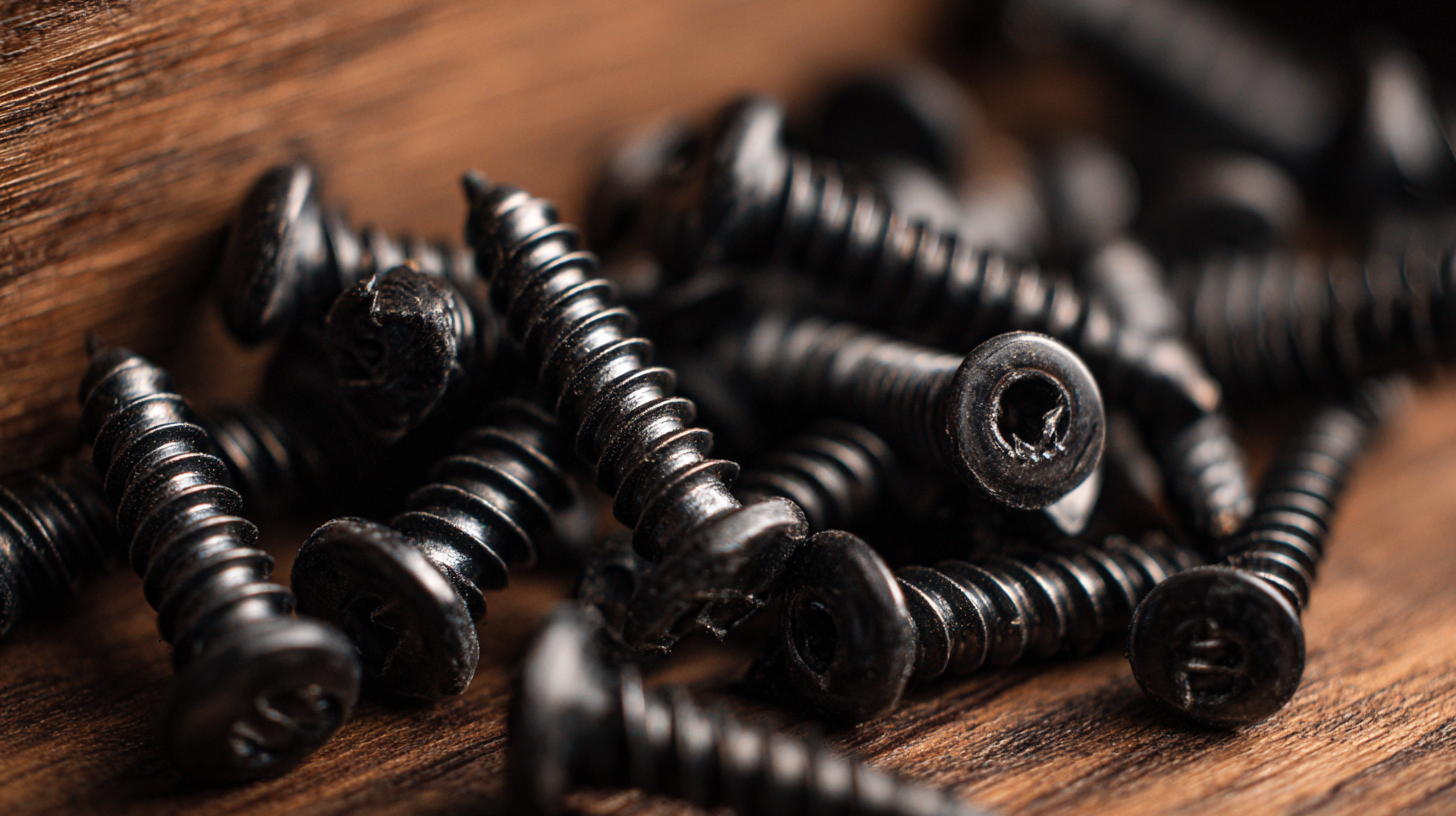
When it comes to DIY projects, black self tapping screws offer both aesthetic appeal and superior functionality. These screws come in various types, each designed for specific applications. For instance, pan head screws are ideal for securing metal to wood, providing a clean finish. Likewise, flat head screws are perfect for applications where a flush surface is desired, making them suitable for cabinetry and furniture.
Tips: To enhance the strength of your joint, consider selecting screws with a coating that resists corrosion. This is especially important for outdoor projects where exposure to the elements can compromise materials over time. Additionally, using the right drill bit size is crucial; a slightly smaller bit than the screw diameter can ensure a tight fit and reduce the risk of splitting the material.
Another popular type is the hex head screw, which is perfect for fastening heavier materials together. Its design allows for a greater torque application, which is beneficial in construction applications. Remember, when working with different materials, adjust your screw type accordingly—plastic, wood, or metal will all require specific thread designs to ensure optimal results.
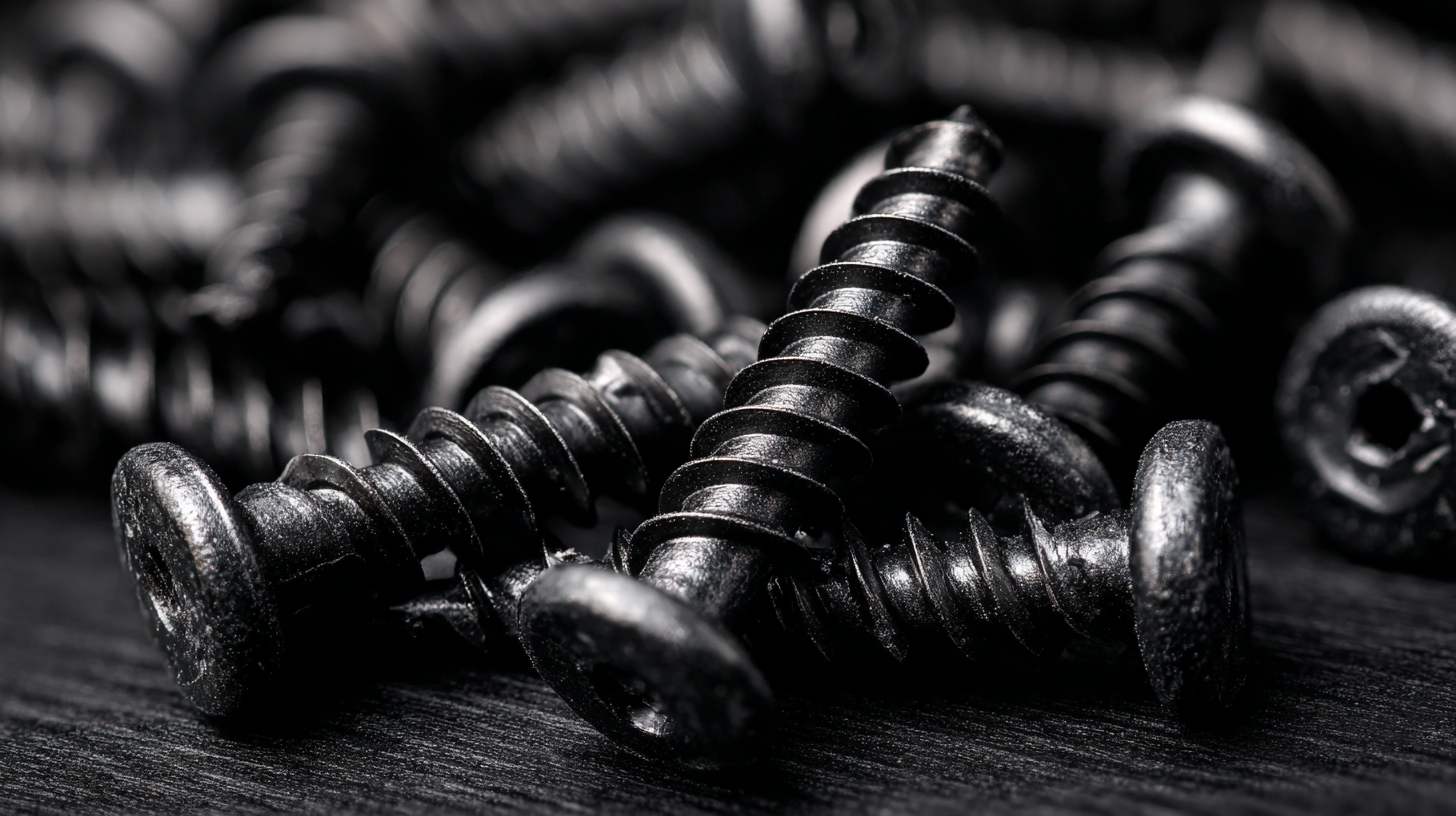
Black self-tapping screws are an essential component for DIY enthusiasts, particularly when it comes to choosing materials that are both durable and aesthetically pleasing. These screws are typically made from high-carbon steel or stainless steel, often coated with a black finish to enhance corrosion resistance and provide a sleek appearance. According to industry reports, the use of black oxide and zinc plating not only improves the lifespan of screws but also makes them preferable for outdoor projects, as they harmonize well with various material colors, reducing the visibility of fasteners on finished surfaces.
When selecting black self-tapping screws, it's important to consider the type of project at hand. For instance, high-strength screws are ideal for structural applications, while finer-threaded options work better for thin materials like sheet metal. Recent trends indicate a growing preference among DIYers for color-matched fasteners, particularly in applications like shelving and cabinetry, where aesthetics play a crucial role. Utilizing specialized screws that blend with the surface not only enhances the overall look but also minimizes surface damage, a key consideration for renters aiming to protect their deposit while executing stylish home improvements.
| Material | Benefits | Common Uses | Corrosion Resistance |
|---|---|---|---|
| Stainless Steel | Excellent strength and durability | Outdoor furniture, marine applications | High |
| Carbon Steel | High tensile strength and lower cost | Construction, automotive parts | Medium |
| Coated Steel | Enhanced corrosion resistance and aesthetics | Furniture assembly, indoor fixtures | Moderate to High |
| Aluminum | Lightweight and resistant to corrosion | Electronics, lightweight structures | High |
| Brass | Corrosion-resistant and aesthetically pleasing | Plumbing, electrical applications | Very High |
Choosing the right black self-tapping screw for your project can significantly impact the durability and aesthetics of the final result. When selecting screws, consider the material they will be fastening. For metal-to-metal applications, look for carbon steel screws with a black oxide finish, which enhances corrosion resistance. According to the National Fastener Distributors Association, approximately 70% of fastening failures can be attributed to improper screw selection, making informed choices essential for successful projects.
Tip: Always match the screw size and thread pitch to the material thickness. For example, if you’re working with sheet metal, a fine thread screw will provide better grip compared to a coarse thread screw, minimizing the risk of stripping.
In addition to size and thread type, assess the environment where the screws will be used. If your project is exposed to high humidity or chemicals, opt for screws with a special coating, such as black zinc, which offers additional corrosion protection. According to a report from the American Fastener Distributors Association, using the appropriate coating can increase the lifespan of fasteners by up to 30%, ensuring your project withstands the test of time.
Tip: Use a pilot hole for larger screws to facilitate easier installation and prevent material splitting. This simple step can enhance screw effectiveness and prolong the integrity of your work.
This chart illustrates the most common types of black self tapping screws, their sizes, and their typical uses. DIY enthusiasts can use this information to select the right screw for their projects.
When working on DIY projects, the importance of proper installation techniques for black self-tapping screws cannot be overstated. These screws are designed to drill their own holes, making them ideal for quick assembly. When installing, it’s crucial to use the right drill bit; typically, a high-speed steel bit will provide the best results. Ensuring the hole is clean and free of debris enhances the screw's grip and structural integrity. Additionally, maintaining a steady hand while driving the screw can prevent stripping and ensure a snug fit.
Another effective technique involves pre-drilling a pilot hole when working with harder materials. This helps in reducing the amount of force required while securing the screw, leading to a more precise installation. Furthermore, using a power screwdriver with adjustable torque settings can prevent over-tightening, which can damage both the screw and the material. For added strength, consider complementary connectors or structural screws that work harmonously with black self-tapping screws in larger projects such as building outdoor structures like pergolas, where speed and sturdiness are paramount.
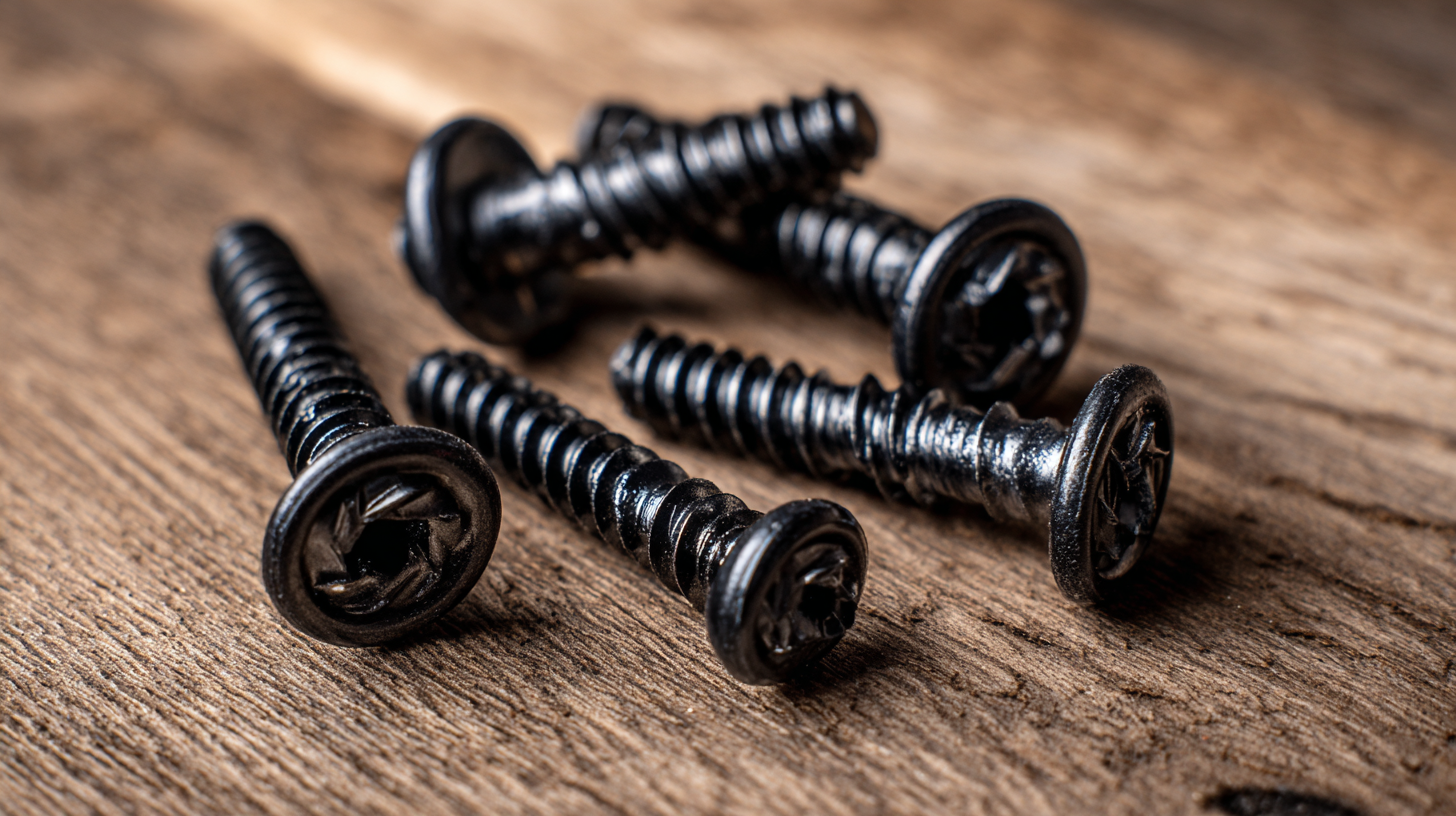
When it comes to DIY projects, the longevity of black self-tapping screws is a crucial factor that can determine the overall durability of your work. According to a report by the Fastener Quality Act, properly maintained screws can enhance the integrity of construction projects significantly. Using corrosion-resistant materials, such as those treated with black oxide finishes, can increase lifespan by up to 50% compared to untreated screws. Thus, ensuring your screws are made from high-quality materials is essential for long-term durability.
Regular maintenance, including periodic inspections and appropriate lubrication, can further extend the lifespan of these screws. The Construction Industry Research Institute states that including black self-tapping screws in environments subjected to moisture or harsh weather can shorten their life if not properly treated. Implementing protective coatings and choosing the right screw types for specific applications are strategies that can effectively mitigate potential failures, thereby securing the structural integrity of your projects. Adopting these practices will not only enhance the durability of your fasteners but also ensure that your hard work remains intact for years to come.
